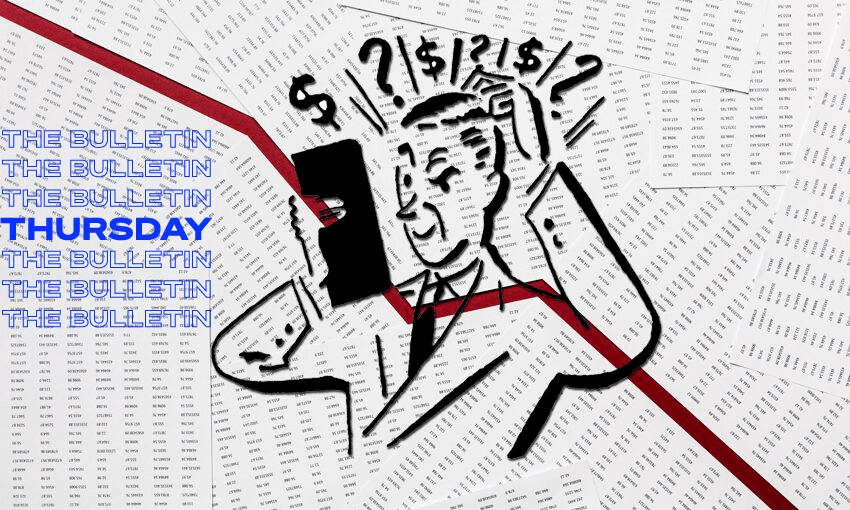Adrian Orr wished the media at the press conference yesterday “a wonderful and sensibly-spending Christmas”. That message wasn’t just for those in the room, writes Anna Rawhiti-Connell in this excerpt from The Bulletin. To receive The Bulletin in full each weekday morning, sign up here.
Recession from mid-2023
Obviously yesterday’s Bulletin should not have said “last OCR-related Bulletin of the year” but instead “last preview”. Yesterday’s news of the 4.25% OCR from the Reserve Bank and accompanying hard truths, is running on most front pages this morning, with the Herald’s really bringing reality home. The Reserve Bank now sees the OCR rising to a peak of 5.5% in 2023. It was 4.1% in August’s monetary policy statement (MPS). Most were expecting the rate but it was the statement that delivered the message that things are worse than we thought. It forecasts that New Zealand will enter recession from mid-2023.
Bumpy, rather than hard landing
Slight silver lining in both the Reserve Bank and ANZ economist Sharon Zollner’s comments. Zollner said “The hope that we could land the Boeing 747 on a postage stamp has gone out the window” but the landing was likely to be “bumpy” rather than a very hard one. Adrian Orr described the forecast recession as a relatively “shallow” economic contraction. That said, as the Herald’s Jenée Tibshraeny reports (paywalled), Jim Reardon, Westpac’s former treasurer, said he could see two-year fixed mortgage rates hitting 8%. They’re currently sitting between 6 and 7%.
‘Cool the jets’ not just a message for consumers
Adrian Orr had a message for consumers during the press conference. “Think harder about your spending. Think about saving rather than consuming, I know that’s a strange concept,” he said. “Just cool the jets.” This will obviously hit differently depending on your situation. If you’re already struggling, it will go down like a cup of cold gruel. The bank’s monetary policy committee also noted inflation pressure from fiscal policies was skewed to the upside. In plain language, Infometrics principal economist Brad Olsen said “They’re quite clearly saying there that the government is contributing to inflation, or certainly not helping the case to get it under control.”
Forecasts potentially claim early policy scalp
The political ramifications started to emerge yesterday. National party leader Christopher Luxon said that everything in the party’s tax policy except indexed tax brackets is now under review. That includes cutting the top tax rate. “We would like to offer people tax relief, but when I look ahead, if I think about the 39% tax rate in particular, that’s something I really want to think about because … in this environment, the situation has changed big time. Big time,” he said. Commentary has already begun on what yesterday’s news means for the government’s re-election chances. The Herald’s Thomas Coughlan writes (paywalled) “If Labour loses next year’s election, commentators could point towards Wednesday’s MPS as the moment it became clear things were beginning to unravel.”


